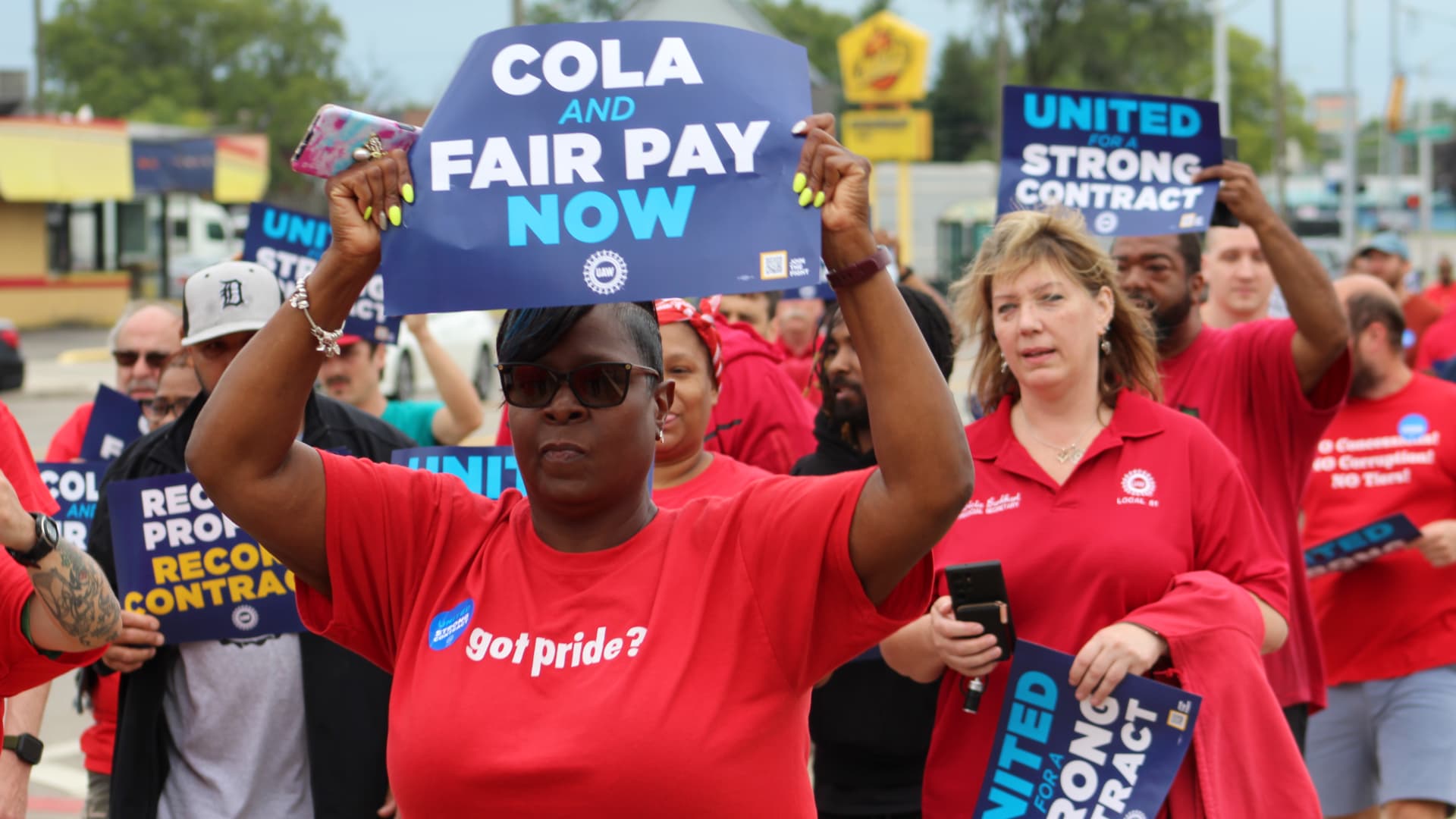Members of the United Auto Workers (UAW) union recently held a rally and practiced picketing near a Stellantis plant in Detroit. UAW President Shawn Fain has made it clear that he is prepared to take a hard stance in contract negotiations with General Motors, Ford Motor, and Stellantis. The current contract is set to expire at 11:59 p.m. on September 14, and Fain has stated that he does not plan to extend the deadline. He is willing to call for a strike and remove approximately 150,000 auto workers from factories if necessary. In addition, Fain and the union have filed unfair labor practice charges against GM and Stellantis, claiming that the companies have not been negotiating in good faith.
Unlike previous union leaders, Fain is negotiating with all three automakers simultaneously and refusing to focus on a particular “target” company while extending deals with the others. He has taken a more confrontational approach with the automakers and has even launched personal attacks on executives. Some industry analysts and experts believe that a strike may be necessary to demonstrate to UAW members that the union leaders have fought hard for their demands.
Art Wheaton, a labor professor at Cornell University, predicts that there will likely be a strike, starting with Stellantis, followed by additional pressure on Ford and GM to improve their offers. Strikes could take various forms, including a national strike or targeted work stoppages at specific plants. A strike against all three automakers would have a significant impact on the automotive supply chain, the U.S. economy, and domestic production.
The Biden administration is closely monitoring the negotiations, and Wall Street investors have warned of the potential for a strike. A survey by Morgan Stanley found that 58% of investors believe a strike is “extremely likely.” The investors also expect the strike to last longer than a week, with 34% predicting it to last longer than a month.
The UAW’s 14-member International Executive Board (IEB), led by President Fain, will ultimately decide whether to call for a strike. A two-thirds majority vote is required for a work stoppage to be approved. The duration of a potential strike is uncertain, but investors anticipate it lasting longer than a week, based on the previous strike against GM in 2019 that lasted 40 days and cost the automaker $3.6 billion in earnings.
Ratification of any tentative agreement reached between the union and an automaker will ultimately depend on the members’ votes. Recent negotiations have seen members reject tentative deals, leading to further negotiations. Once a tentative agreement is reached, the ratification process can take approximately two weeks for each company.
While both the union and automakers continue to negotiate in good faith, the possibility of a strike remains, and the outcome of these contract negotiations will have far-reaching implications for the industry and its stakeholders.
Denial of responsibility! VigourTimes is an automatic aggregator of Global media. In each content, the hyperlink to the primary source is specified. All trademarks belong to their rightful owners, and all materials to their authors. For any complaint, please reach us at – [email protected]. We will take necessary action within 24 hours.


